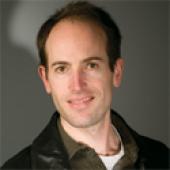Developer Told Posted Code Infringes Patents
Software may be speech, but it's also functional and subject to legal restraint.
July 8, 2010

Roy van Rijn, a developer based in the Netherlands, last month posted about his plans to release open-source Java code to implement a music matching algorithm similar to that used in Shazam, which lets users identify songs from brief audio samples.
His blog post describes how he implemented song matching in Java, with snippets of code. He said that while the code is not in a releasable state, he might clean it up and release it if there's enough interest.
About a week ago, he received a letter from Darren P. Briggs, VP and CTO of Landmark Digital Services, asking that the preliminary code be taken down and that no further code be posted.
Landmark Digital Services is a subsidiary of Broadcast Music (BMI), which acquired Shazam Entertainment's patent portfolio in 2005. It markets music recognition technology under the name BlueArrow.
"While it is not Landmark's intention to alienate those in the Open Source and Music Information Retrieval community, Landmark must request that you do not ship, deploy or post the code presented in your post," Briggs's letter states. "Landmark also requests that in the future you do not ship, deploy or post any portions or versions of this code in its current state or in any modified state."
In response to an e-mail sent to Briggs seeking clarification of Landmark's legal claim, BMI spokesperson Hanna Pantel denied that there has been any legal threat. "In response to your e-mail to Darren Briggs, Landmark had a private conversation with the Dutch developer in question, we have not pursued any legal action," she wrote.
Yet, the threat of legal action is clear. By refusing to take down his blog post, van Rijn risks an expensive patent lawsuit, or so Dutch patent attorney Arnoud Engelfriet told him.
EFF Fellow and patent attorney Michael Barclay agreed that posting code covered by a patent could put van Rijn at risk of a lawsuit, but noted that some critical details need to be determined.
"Merely posting the code on a Netherlands Web site would not infringe any US Patents," he said.
Landmark's claim, he said, appears to be overreaching unless the company has patents in the Netherlands. "If there are no issued Netherlands patents, he's free to ship and deploy all he wants in the Netherlands," he said. "The really sketchy part, and I don't know that this has ever been litigated, is he says don't post the code."
Eric Goldman, associate professor of Law at Santa Clara University School of Law and a noted tech law blogger, also characterizes Briggs's letter as overreaching.
"The request not to explain the algorithm appears to be a clear overreach on the patent owner's part," he said in an e-mail. "The threat that publishing code from a Netherlands server constitutes potential patent infringement of a US patent is probably an aggressive legal position. (The letter references patent applications in the Netherlands, but the applications are not a property right until granted, so the US patent owner does not have any enforceable rights in the Netherlands yet)."
Goldman says that even if the code were published on a server in the US, it's not certain the person who posted the code would be directly liable for patent infringement. "It depends on whether coding the algorithm constituted 'making' the patented invention," he said. "More likely, I would expect the code author could be liable only for contributory infringement from code users who infringe on the patent, and that would require knowing more about the users' direct infringement."
Briggs claims that Landmark, in addition to having two specific U.S. patents, has "additional issued patents and pending patent applications in the US and EU that cover these concepts as well."
But Briggs has not cited any specific EU patents. And BMI's Pantel did not respond to a request to provide the EU patent numbers that Landmark claims to have been granted.
Craig Hemenway, a partner in Dorsey & Whitney's intellectual property practice group, said that much depends on the EU patent situation. "Software is clearly patentable subject matter," he said.
He notes that if you file in the EU patent office, you have to decide which EU countries you want to register the patent in once the patent is granted. "If they did not in fact register in the Netherlands, they can't bring a cause of action in the Netherlands," he said. However, he acknowledged that Landmark could initiate legal action in the US claiming that software published on a Dutch server is accessible in the US, which could be said to be contributory infringement at least.
Yet, Hemenway also suggested that, particularly in light of the Supreme Court's recent decision in the Bilski case, Landmark's patents might be subject to challenge, if they describe an abstract idea rather than a specific implementation. The musical operations described, he said, sound as if they could be carried out by a sufficiently skilled person with a pencil and paper.
About the Author
You May Also Like




